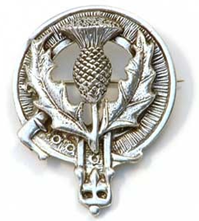|
One of the most popular songs
of the Highlands, this was translated from the Gaelic in the
late 19th century by the Scottish poet John Stuart Blackie
(above).
John Stuart Blackie (28
July 1809 –
2 March 1895)
was a Scottish scholar and man of letters. He was born in
Glasgow, and educated at the New Academy and afterwards at the
Marischal College, in Aberdeen, where his father was manager of
the Commercial Bank.
After attending classes at Edinburgh
University (1825-1826), Blackie spent three years at Aberdeen as
a student of theology. In 1829 he went to Germany, and after
studying at Göttingen and Berlin (where he came under the
influence of Heeren, Ottfried Muller, Schleiermacher, Neander
and Bockh) he accompanied Bunsen to Italy and Rome. The years
spent abroad extinguished his former wish to enter the Church,
and at his father's desire he gave himself up to the study of
law.
He had already, in 1824, been placed in a
lawyer's office, but only remained there six months. By the time
he was admitted a member of the Faculty of Advocates (1834) he
had acquired a strong love of the classics and a taste for
letters in general. A translation of Faust, which he published
in 1834, met with considerable success, winning the approbation
of Carlyle. After a year or two of desultory literary work he
was (May 1839) appointed to the newly-instituted chair of
Humanity (Latin) in the Marischal College.
Difficulties arose in the way of his
installation, owing to the action of the Presbytery on his
refusing to sign unreservedly the Confession of Faith; but these
were eventually overcome, and he took up his duties as professor
in November 1841. In the following year he married. From the
first his professorial lectures were conspicuous for the
unconventional enthusiasm with which he endeavored to revivify
the study of the classics; and his growing reputation, added to
the attention excited by a translation of Aeschylus which he
published in 1850, led to his appointment in 1852 to the
professorship of Greek at Edinburgh University, in succession to
George Dunbar, a post which he continued to hold for thirty
years.
He was somewhat erratic in his methods, but
his lectures were a triumph of influential personality. A
journey to Greece in 1853 prompted his essay On the Living
Language of the Greeks, a favorite theme of his, especially
in his later years; he adopted for himself a modern Greek
pronunciation, and before his death he endowed a travelling
scholarship to enable students to learn Greek at Athens.
Scottish nationality was another source of
enthusiasm with him; and in this connection he displayed real
sympathy with highland home life and the grievances of the
crofters. The foundation of the Celtic chair at Edinburgh
University was mainly due to his efforts. In spite of the many
calls upon his time he produced a considerable amount of
literary work, usually on classical or Scottish subjects,
including some poems and songs of no mean order.
Blackie was a Radical and Scottish
nationalist in politics, of a fearlessly independent type;
possessed of great conversational powers and general
versatility, his picturesque eccentricity made him one of the
characters of the Edinburgh of the day, and a well-known figure
as be went about in his plaid, worn shepherd-wise, wearing a
broad-brimmed hat, and carrying a big stick.
In the 1880s and 1890s, he lectured at Oxford
on the pronunciation of Greek, and corresponded on the subject
with William Hardie. In May 1893, he gave his last lecture at
Oxford, but afterwards admitted defeat, stating: "It is utterly
in vain here to talk reasonably in the matter of Latin or Greek
pronunciation: they are case-hardened in ignorance, prejudice
and pedantry".
He died in Edinburgh.
|



